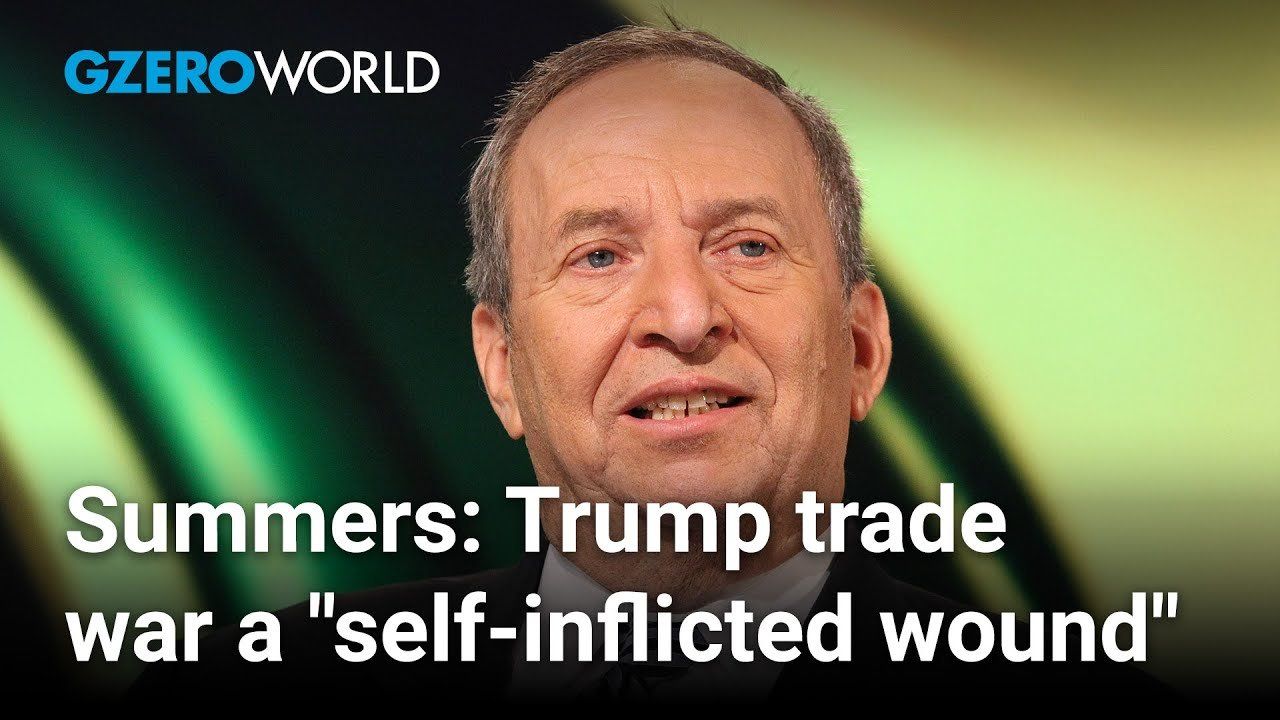GZERO World with Ian Bremmer
Larry Summers: Trump's trade war the "worst self-inflicted wound since WWII"

- YouTube

On a scale of 1-10, how irritated is former Treasury Secretary Larry Summers by the Trump administration's escalating trade war? He's at an 11. On a special edition of GZERO World with Ian Bremmer, Summers says he is highly concerned with the White House's ad hoc and escalating imposition of tariffs, which he describes as the "worst, most consequential, self-inflicted wound in US economic policy since the Second World War." He believes that even if the tariffs are reversed, the US has already lost significant credibility globally, which will have long-term consequences for the country's ability to sell debt, form security alliances, and conduct economic and foreign policy.
Summers, formerly the president of Harvard University, also tells Ian that he's more than a little disappointed by the lack of public pushback from US institutions and business leaders, though he understands the complexities they face in speaking out against the administration. But economics aside, Summers is more worried about the threat to American democracy and the rule of law than the health of the US and global economy. Economic damage can be reversed but erosion of democratic norms is harder to recover from.
New digital episodes of GZERO World are released every Monday on YouTube. Don't miss an episode: subscribe to GZERO's YouTube channel and turn on notifications (🔔).GZERO World with Ian Bremmer airs on US public television weekly - check local listings.
How is the US is reshaping global power dynamics, using tariffs and unilateral action to challenge the international order it once led? Michael Froman joins Ian Bremmer on GZERO World to discuss.
In this Quick Take from Munich, Ian Bremmer examines the state of the transatlantic alliance as the 62nd Munich Security Conference concludes.
At the 2026 Munich Security Conference, Brad Smith announces the launch of the Trusted Tech Alliance, a coalition of global technology leaders, including Microsoft, committing to secure cross-border tech flows, ethical governance, and stronger data protections.